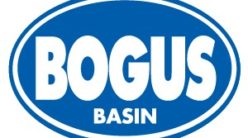Journal Staff
SAN FRANCISCO — Healthline.com has completed a survey of over 3,000 Americans on their attitudes, habits and knowledge on the effects of sugar on the body. Using the American Heart Association’s recommended daily allowances for sugar consumption as a reference point, Healthline’s survey found that most people are eating too much sugar but don’t know how to cut back. Although the American Heart Association was the first to create a practical guideline on sugar for consumers, the Healthline survey showed that most people were not aware of those recommendations.
Healthline.com conducted research among over 3,000 Americans on their knowledge of sugar and how it affects the body to gauge their relationship about their own sugar consumption and the effects it has on them. The Healthline Sugar Survey finds that while Americans are aware of the negative effects of sugar, they aren’t doing much about it because they don’t actually know how.
Two out of 3 guess wrong on sugar contents of popular foods and 70 percent don’t know how many grams are in a teaspoon of sugar nor the calorie equivalent.
The amount of sugar that is considered “too much” has not been engrained into the minds of most consumers as it has for other nutrition facts such as total calories, carbs, and fat. Two out of three survey respondents said that sugar was their main concern (over fat and carbs) and admit they need to reduce their sugar intake. Many said they feel guilty about eating sugar but their answers show that they don’t fully understand how much sugar is contained in their foods, nor do they fully comprehend the role of sugar in physical addiction.
“The survey revealed to us that just letting people know about the facts around sugar’s dangerous effects to our health is not enough,” said Tracy Stickler, Healthline’s editor in chief. “That’s why our campaign offers both everyday tips as they relate to the supermarket or kitchen as well as emotional and spiritual advice for cutting back on sugar, which is highly addictive.”
The Healthline survey did reveal a high percentage of people seek foods labeled as having little or no sugar. More than half, 56 percent, said while shopping, they prioritized the label designating “no sugar added” and 32 percent looked for “sugar free” foods. Only 10 percent said they don’t look at food labels, but for those who do, over 1 in 3 (38%) don’t trust food labels.
“Scientific research has shown that along with obesity and tooth decay, sugar is linked to serious illnesses including heart disease, cancer, diabetes, Alzheimer’s, fatty liver disease and insulin resistance. It also can contribute to skin issues, the aging process and be highly addictive,” said David Kopp, CEO of Healthline Media, Inc. “Our readers depend on our guidance to help them navigate through the complexities of health issues. With sugar, it’s not just about our changing our actions, it’s also about shifting our mindset, which we address in our coverage.”
By July 26, the Nutrition Facts label for packaged foods are required to change including listing “total sugar” and “added sugars.”1 Americans are in for quite a surprise as to the actual amount of total and added sugar packaged food items really contain as today significant amounts of added sugar are hidden in the ingredients listing and not the Nutrition Facts. There are over 60 different names for sugar — most unrecognizable to the average consumer.
Additionally, there seems to be a misunderstanding when it comes to foods that contain a high amount of sugar that aren’t perceived to be as sugar-laden as categories that overtly contain sugar as a central ingredient, such as cake, ice cream, and sweetened cereal. For example, when respondents were asked to select the food item with the most sugar in pairings, they incorrectly assumed common baked goods and dessert contained more sugar than a yogurt with fruit or an energy bar.
Adding complexity is also the fact that the vast majority (76 percent) were not aware of the American Heart Association’s daily recommendation for added sugar intake —Men (36 grams/9 teaspoons/150 calories) and Women (24 grams/6 teaspoons/100 calories).





